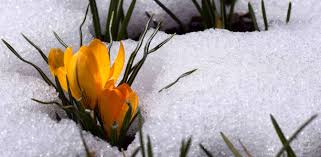Sr. Rachel Bergschneider: Third Sunday of Lent
As I reflect on the Scriptures for the Third Sunday of Lent, I am reminded of an old American Indian story: “An old Cherokee is teaching his grandson about life. “A fight is going on inside me,” he said to the boy.
“It is a terrible fight and it is between two wolves. One is evil—he is anger, envy, sorrow, regret, greed, arrogance, self-pity, guilt, resentment, inferiority, lies, false pride, superiority, and ego.” “The other is good—he is joy, peace, love, hope, serenity, humility, kindness, benevolence, empathy, generosity, truth, compassion, and faith. The same fight is going on inside you—and inside every other person, too.”
The grandson thought about it for a minute and then asked his grandfather, “Which wolf will win?”
The old Cherokee simply replied. “The one you feed.”
In the readings today, choices are presented with some urgency—repent or perish. In the first reading from Exodus we hear of the Israelites who grumbled in the desert and suffered death. The Gospel speaks about the necessity of repenting. “If you do not repent, you will all perish like the Galileans.”
Such repentance sounds scary. What exactly does that mean? Most of us are probably not huge sinners. We are just common sinner folk. We hear of repentance, but are sort of stuck where we are. It is a bit like the fig tree in the Gospel. It was alive, just not doing much. It is easy to get lulled into the notion that we are doing OK and forget about the urgency of cultivating our relationship with God. In other words, we become mediocre in our faith.
As the story goes in the Gospel, the fig tree was not producing. It was time to get rid of it. But, with a bit of cultivating and fertilizing the soil, things could change. The gardener begged for more time. “Sir, leave it for this year also, and I shall cultivate the ground around it and fertilize it.”
Repentance is not a single act. It is a process of “turning around, of changing our ways.” The season of Lent is an opportune time to cultivate the soil of our spiritual life. It allows us time to take seriously the commitment to change our hearts. Possibly we need to dig out the old soil and regenerate it. More to the point: the challenge of Lent is to allow God to cultivate and fertilize us, dig out the unproductive soil to replace it with that which can bear more fruit.
God desperately desires a deeper relationship with us. That relationship is one that includes all those who test our willingness to dig in the soil of our hardness of heart to allow forgiveness to take hold within us. It may be the old soil of a broken relationship; it may be the refusal to water our present relationships. Whatever it is, God longs for us to restore and repent of broken relationships so that we may live the abundance of God’s fruitful life.
In our effort to change our hearts, we are encouraged by the first reading. Like Moses who saw a burning bush in the midst of his ordinary task of tending his flock, God appeared as in a burning bush. God, who so longs for our whole heart, appears in the ordinary to encourage us, to say I am with you in your efforts.
Lent gives us time to decide—decide which wolf we are going to feed: the wolf of resentment and anger or the wolf of compassion and love. The choice is ours!





